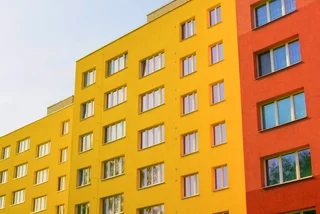If you’re considering a mortgage, definitely check Mortgages.cz where you can get the very best rates in the Czech Republic for mortgages.
Written by Erik Dempsey,
Property in Prague s.r.o
In particular, the property market has shown unprecedented growth in valuations since about 2001.
There are many opinions about the effect EU entry will have on the property market, but they generally fall into one of three camps: 1) Prices will soar after entry so the time is now to get in before the ‘big spike’, 2) Prices will plummet because the market has overvalued EU entry, 3) Nothing will happen since the future value of EU entry on property values have already been factored in to today’s prices.
Our forecast embellishes on point #3 by adding that the EU will provide an avenue for sustained growth of the overall Czech Economy which in turn sustains a healthy growth in property values. There will be no sudden movements either up or down in May 2004, but we will see sustainable growth into the long-term.
Many prognosticators look at the Spanish economy before and after 1986 when it joined the EU. There is little doubt that Spain’s economy benefited materially to this day thanks to EU entry. It is also no coincidence that Spain’s property market became a hot item for investors shortly thereafter. Foreigners flocked to buy up beach houses and resort condominiums. This demand has driven prices for such properties up by 15-50% annually for the past several years. Many advertisements still claim ‘30%+ minimum growth.’
So, will Prague’s economy and subsequently property prices move like Spain’s did after it joined the EU? We argue the answer is, ‘Yes,’ but, for entirely different reasons.
Spanish property has grown due to strong and continuing demand; mainly from Northern Europeans seeking to get away to a sunny environment a few days or weeks a year. However, the growth factor has attracted the attention of many individuals who are no longer buying for the fun and sun, but on the hopes that they can leverage it with cheap financing covered by income generated by renting it out and cash in on huge capital gains from the sale in the future.
We are witnessing this exact phenomenon in Prague where prices have soared 20-100% in most areas over the last 2-3 years. Predictably, many investors from abroad have been and still are buying under the same presumption described for Spain. Both markets show signs of bubbles in their respective prices and many wonder how much further prices can go up. That is where the similarity ends.
As usual, the differences lie in the fundamentals behind the growth.
In Spain, a large proportion of property purchases are driven by foreign speculators. In the Czech Republic, only about 1-2% of residential property sales are to foreigners.
In Spain, even if the foreign buyer is not just speculating on price growth, their house in Spain is most likely a secondary residence. When things get rough financially (which is most likely to occur with the inevitable hike in interest rates in the next 1-2 years) the dedication towards holding on to a second home that is no longer generating enough income to pay the mortgage becomes weak at best.
In the Czech Republic, demand is driven almost entirely by the domestic buyers (i.e. Czechs) who are actually planning to live in their new flat. The dedication of this group to hold on to their property during a period of rising interest rates is much stronger. Furthermore, even though the mortgage market has been growing at 25-50% annually for the last couple of years, only about 5-7% of the potential market for mortgages has been tapped, leaving a huge market yet to jump on the property ladder.
Furthermore, it is estimated that 50,000 dwellings need to be built each year in the Czech Republic for ten years before the supply of housing begins to meet demand. This year, construction will only produce about 35,000 dwellings (27,272 in 2002). Hence, there is plenty of room left for growth.
The bottom line is that price growth in the Czech Republic is being driven by genuine domestic demand for housing where the value is actually based on the need for and shortage of shelter. In Spain, value is driven by foreign speculators on hopes of future price increases. By definition this is a bubble. Sure, there are speculators now investing into Prague, but their purchases are too insignificant to move the market. Lastly, if Spanish property is growing at 30% then Prague properties are growing at 100%.
Written by:
Erik Dempsey, Property in Prague s.r.o
Mr. Dempsey is a Partner at the consulting firm, Property In Prague. He can be reached at erik@propertyinprague.com.
If you’re considering a mortgage, definitely check Mortgages.cz where you can get the very best rates in the Czech Republic for mortgages.












 Reading time: 4 minutes
Reading time: 4 minutes 



















